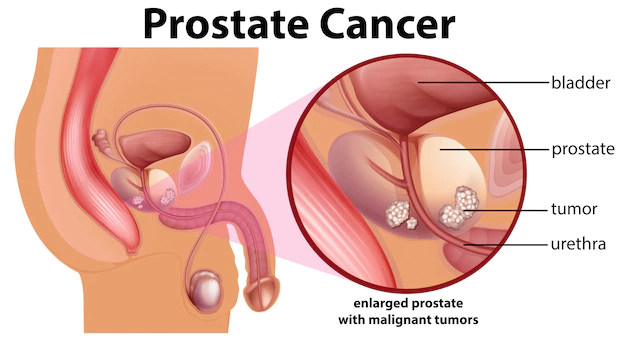
Prostate cancer occurs in the prostate gland, that’s located between the bladder and the penis. Experts do not know what causes prostate cancer, but the risk increases with age. Genetic, environmental, and lifestyle factors can also contribute to the heightened risk of men developing prostate cancer.
Although rare, younger men (between 15 and 40 years) can also be diagnosed with cancer. Early screening and detection can help you get the best prostate cancer treatment in Navi Mumbai. In the meantime, let’s understand the causes of prostate cancer in young males.
Genetic Factors
BRCA 1 and BRCA 2 genes are responsible for repairing damaged cells and preventing your normal cells from growing uncontrollably, increasing your risk of developing cancer of the breasts and prostate (in men). If the child receives even a single mutated copy of either of these genes, their risk of prostate cancer increases.
So, gene mutation is one of the common causes of prostate cancer in younger males. If you have a family history of prostate cancer, such as a brother or father diagnosed with this chronic illness, your risk of developing it heightens. Younger males diagnosed with prostate cancer due to the BRCA gene mutations are likely to develop an aggressive form of cancer that might spread rapidly.
Lifestyle and Environmental Factors
Your dietary habits are also linked to your prostate cancer risk. A diet rich in red meat and processed food with fewer vegetables and fruits may increase your risk. Obesity is also a major factor here.
Not only are obese people more vulnerable to developing prostate cancer, but there’s a higher chance the cancer might return after treatment in obese people. Smoking, regular alcohol consumption, and sexually transmitted diseases are other risk factors.
Additionally, environmental factors like regular exposure to harmful toxins at work or radiation can destroy your prostate cells, which eventually increases the likelihood of developing prostate cancer in young men.
Also Read: Prostate Cancer Symptoms in Males
Hormonal Influences
High levels of testosterone and androgen are associated with an increased risk of prostate cancer, although significantly low levels of these hormones can also increase your cancer risk. The abnormal levels of these hormones can disrupt prostate cell growth, which can eventually turn into cancer.
If your cancer is linked to hormonal imbalance, hormone therapy combined with other treatment options can help shrink the tumor and slow its growth. Speak with a prostate cancer surgeon in Navi Mumbai to learn how hormone therapy works for prostate cancer.
Inflammation and Infection
Inflammation or infection in the prostate gland can also develop into cancer over time. That’s more common in men with chronic inflammation. Frequent bacterial infections in the prostate and sexually transmitted infections can trigger your body’s immune system to release white blood cells to fight off the bacteria. This leads to inflammation. Chronic inflammation can damage your prostate over time, which can cause abnormal cell growth that can turn cancerous.
Conclusion
Early prostate cancer diagnosis can help you cure cancer and live a cancer-free and healthy life for years. That’s why men with a family history of prostate cancer must get regular screening after 40.


